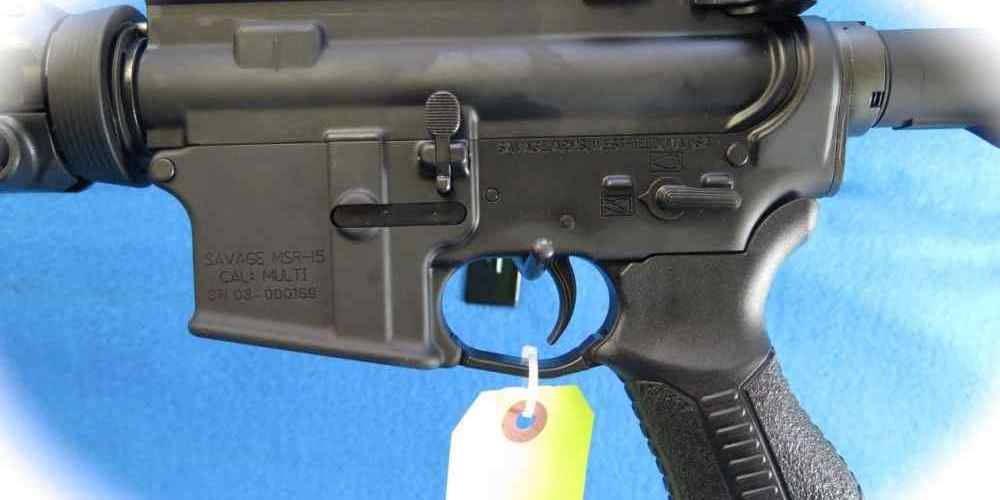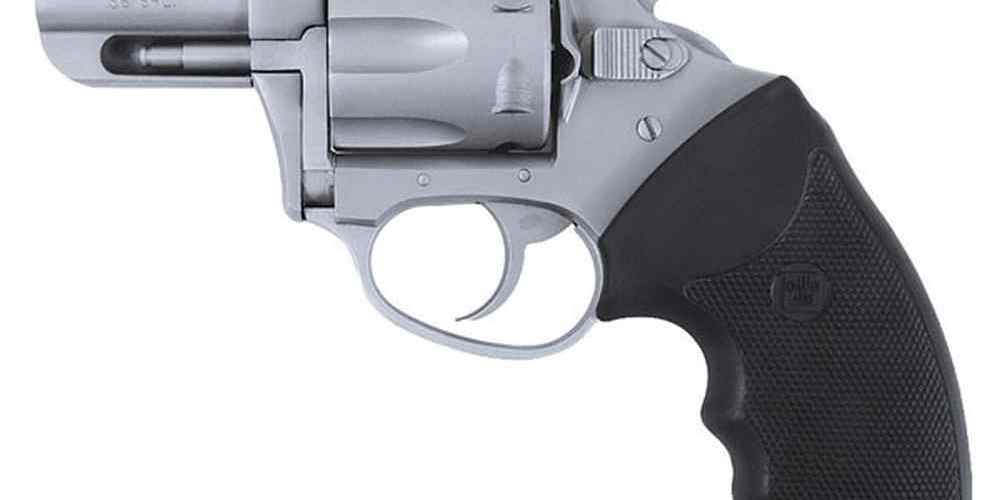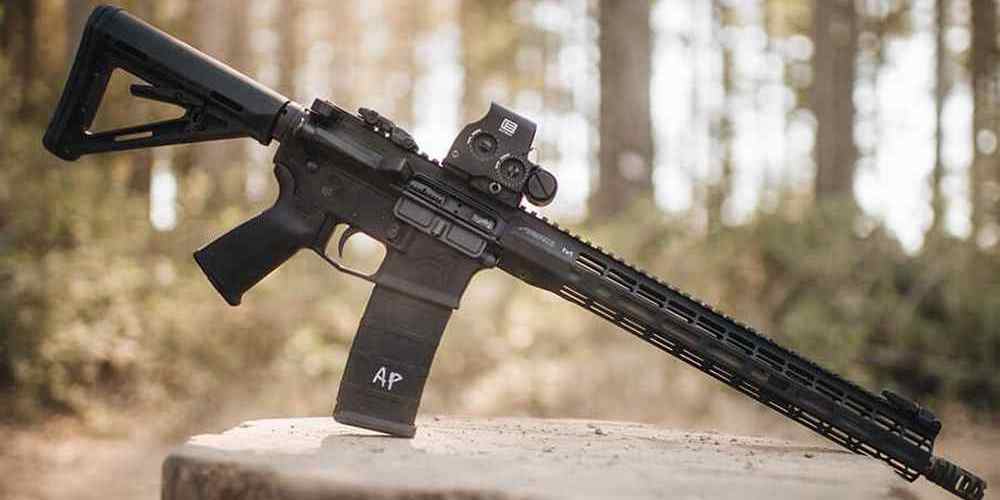“Counting the cost: The economic impact of gun control legislation.”
Impact of Gun Control Legislation on Small Businesses
Gun control legislation has been a hotly debated topic in the United States for many years. While proponents argue that stricter gun laws are necessary to reduce gun violence, opponents often point to the economic costs associated with such legislation. One area that is often overlooked in this debate is the impact of gun control laws on small businesses.
Small businesses play a crucial role in the American economy, providing jobs and driving innovation. However, many small businesses are also involved in the firearms industry, either as manufacturers, retailers, or suppliers. For these businesses, the implementation of stricter gun control laws can have a significant impact on their bottom line.
One of the main ways in which gun control legislation can affect small businesses is through increased compliance costs. For example, if new laws require businesses to conduct more thorough background checks on customers purchasing firearms, this can result in additional expenses for small retailers. These costs can be particularly burdensome for small businesses that operate on tight profit margins.
In addition to compliance costs, small businesses in the firearms industry may also face decreased demand for their products as a result of stricter gun control laws. If consumers are unable to purchase certain types of firearms or ammunition due to new restrictions, this can lead to a decline in sales for small businesses that rely on these products for revenue.
Furthermore, small businesses in the firearms industry may also face increased liability risks under stricter gun control laws. If a customer uses a firearm purchased from a small retailer to commit a crime, the business could potentially be held liable for damages. This risk can make it more difficult for small businesses to obtain insurance coverage, leading to higher costs and potential financial strain.
Overall, the economic costs of gun control legislation on small businesses in the firearms industry can be significant. From compliance costs to decreased demand and increased liability risks, these businesses face numerous challenges in navigating the changing regulatory landscape.
Despite these challenges, there are steps that small businesses can take to mitigate the impact of gun control laws on their operations. For example, businesses can invest in training programs for employees to ensure compliance with new regulations. They can also diversify their product offerings to reduce reliance on firearms sales alone.
Additionally, small businesses can work with industry associations and advocacy groups to advocate for policies that support their interests. By engaging with policymakers and participating in the legislative process, small businesses can help shape gun control laws in a way that minimizes the negative impact on their operations.

In conclusion, the economic costs of gun control legislation on small businesses in the firearms industry are significant. From compliance costs to decreased demand and increased liability risks, these businesses face numerous challenges in adapting to new regulations. However, by taking proactive steps to address these challenges and advocate for their interests, small businesses can navigate the changing regulatory landscape and continue to thrive in the face of evolving gun control laws.
Cost of Implementing Background Checks and Waiting Periods
Gun control legislation has been a hotly debated topic in the United States for many years. Proponents argue that stricter laws are necessary to reduce gun violence, while opponents believe that such measures infringe on their Second Amendment rights. One aspect of gun control legislation that often comes under scrutiny is the economic cost of implementing background checks and waiting periods.
Background checks are a common requirement for purchasing firearms in many states. These checks are intended to prevent individuals with criminal records or mental health issues from obtaining guns. While the goal of background checks is noble, the cost of implementing them can be significant. The process involves accessing various databases to check an individual’s criminal history, which requires time and resources.
In addition to background checks, waiting periods are another common feature of gun control legislation. Waiting periods require individuals to wait a certain amount of time before they can take possession of a firearm. The idea behind waiting periods is to prevent impulsive acts of violence by giving individuals time to cool off before obtaining a gun. However, like background checks, waiting periods also come with a price tag.
The cost of implementing background checks and waiting periods can vary depending on the state and the specific requirements of the legislation. In some cases, the cost is borne by the government, while in others, it is passed on to gun buyers in the form of fees. Regardless of who foots the bill, the economic impact of these measures is a consideration that cannot be ignored.
One of the main costs associated with background checks and waiting periods is the manpower required to conduct them. Law enforcement agencies are often responsible for running background checks, which can be a time-consuming process. This means that officers must dedicate valuable resources to conducting these checks, taking them away from other important tasks.
Another cost to consider is the technology needed to conduct background checks. Accessing criminal databases and other relevant information requires sophisticated software and hardware, which can be expensive to acquire and maintain. In addition, there are costs associated with training personnel to use this technology effectively.
In addition to the direct costs of implementing background checks and waiting periods, there are also indirect costs to consider. For example, some opponents of gun control legislation argue that these measures can have a negative impact on the economy. They claim that stricter laws can deter gun buyers, leading to a decline in sales for gun manufacturers and retailers.
On the other hand, proponents of gun control legislation argue that the economic costs are a small price to pay for the potential benefits of reducing gun violence. They point to studies that show a correlation between stricter gun laws and lower rates of gun-related deaths. They argue that the cost of implementing background checks and waiting periods is worth it if it saves lives.
In conclusion, the economic costs of implementing background checks and waiting periods as part of gun control legislation are significant. From the manpower required to conduct checks to the technology needed to access relevant information, there are many expenses associated with these measures. While opponents of gun control legislation may argue that these costs are too high, proponents believe that they are a necessary investment in public safety. Ultimately, the debate over the economic costs of gun control legislation is likely to continue as policymakers grapple with finding a balance between protecting Second Amendment rights and preventing gun violence.
Economic Effects of Banning Certain Types of Firearms
Gun control legislation has been a hotly debated topic in the United States for many years. Advocates argue that stricter gun laws are necessary to reduce gun violence and save lives, while opponents argue that such laws infringe on their Second Amendment rights. One aspect of this debate that often gets overlooked is the economic impact of gun control legislation.
When certain types of firearms are banned, it can have significant economic effects. For example, the production and sale of assault weapons may be prohibited, leading to a decrease in revenue for gun manufacturers who produce these types of firearms. This can result in job losses in the firearms industry, as well as a decrease in tax revenue for the government.
Additionally, banning certain types of firearms can also impact related industries, such as gun accessories and ammunition. If certain types of firearms are no longer legal to own, there may be a decrease in demand for accessories and ammunition that are specifically designed for those firearms. This can lead to job losses in these industries as well.
Furthermore, the implementation of gun control legislation can also result in increased costs for law enforcement agencies. For example, if a ban on certain types of firearms is put in place, law enforcement agencies may need to invest in new equipment and training to enforce the new laws. This can result in increased costs for these agencies, which may ultimately be passed on to taxpayers.
In addition to the economic costs of banning certain types of firearms, there are also potential costs associated with the enforcement of background checks and waiting periods for gun purchases. While these measures are intended to prevent individuals with a history of violence or mental illness from obtaining firearms, they can also result in increased costs for gun sellers who are required to conduct these checks. This can lead to higher prices for consumers, as well as potential job losses in the gun retail industry.
It is important to consider these economic costs when evaluating gun control legislation. While the primary goal of such laws is to reduce gun violence and save lives, it is also important to consider the potential impact on the economy. Striking a balance between public safety and economic considerations is crucial when crafting effective gun control policies.
In conclusion, the economic costs of gun control legislation are an important factor to consider when evaluating the impact of such laws. Banning certain types of firearms can result in job losses in the firearms industry, as well as increased costs for law enforcement agencies. Additionally, the enforcement of background checks and waiting periods can also result in higher prices for consumers and potential job losses in the gun retail industry. It is essential to carefully weigh these economic costs against the potential benefits of reducing gun violence in order to craft effective and balanced gun control policies.
Financial Burden of Gun Buyback Programs
Gun control legislation has been a hotly debated topic in recent years, with proponents arguing that stricter laws are necessary to reduce gun violence, while opponents claim that such measures infringe on their Second Amendment rights. One aspect of gun control that often comes under scrutiny is the financial burden it places on both the government and individual gun owners. In particular, gun buyback programs have been a point of contention, with critics arguing that they are costly and ineffective.
Gun buyback programs are initiatives in which individuals can voluntarily surrender their firearms to the government in exchange for monetary compensation. The idea behind these programs is to reduce the number of guns in circulation, thereby decreasing the likelihood of gun-related crimes. However, the effectiveness of gun buyback programs in achieving this goal has been called into question, with some studies suggesting that they have little impact on overall crime rates.
One of the primary criticisms of gun buyback programs is their high cost. The government must allocate significant resources to fund these initiatives, including the money used to compensate gun owners for their firearms. In addition, there are administrative costs associated with running the programs, such as advertising, staffing, and logistics. All of these expenses add up, making gun buyback programs a costly endeavor for taxpayers.
Furthermore, the effectiveness of gun buyback programs in reducing gun violence is debatable. While proponents argue that removing guns from circulation can help prevent crimes, opponents point out that the majority of guns turned in during buyback programs are old, broken, or otherwise unlikely to be used in criminal activities. In fact, a study conducted by the National Research Council found that gun buyback programs have little to no effect on overall crime rates.
Despite these criticisms, gun buyback programs continue to be implemented in many cities and states across the country. Proponents argue that even if the programs are not highly effective in reducing crime, they still serve a valuable purpose by raising awareness about gun violence and providing a safe way for individuals to dispose of unwanted firearms. Additionally, some supporters believe that the symbolic gesture of voluntarily surrendering guns can help change attitudes towards gun ownership and promote a culture of responsible gun use.
In conclusion, the financial burden of gun buyback programs is a significant concern for both the government and individual gun owners. While these initiatives are intended to reduce gun violence by removing firearms from circulation, their effectiveness in achieving this goal is questionable. Critics argue that the high cost of running gun buyback programs outweighs any potential benefits, while proponents maintain that the programs serve a valuable purpose in raising awareness about gun violence. Ultimately, the debate over the economic costs of gun control legislation, including gun buyback programs, is likely to continue as policymakers grapple with how best to address the complex issue of gun violence in society.
Loss of Revenue for Gun Manufacturers and Retailers
Gun control legislation has been a hotly debated topic in the United States for many years. While proponents argue that stricter laws are necessary to reduce gun violence, opponents often point to the economic costs associated with such measures. One major concern is the potential loss of revenue for gun manufacturers and retailers.
The firearms industry is a significant contributor to the U.S. economy, generating billions of dollars in revenue each year. According to the National Shooting Sports Foundation, the industry supports over 300,000 jobs and contributes more than $50 billion to the economy annually. This includes not only the manufacturers of firearms and ammunition but also retailers, gun ranges, and other related businesses.
One of the primary ways that gun control legislation can impact the industry is through restrictions on the types of firearms that can be sold. For example, bans on certain types of semi-automatic rifles or high-capacity magazines can significantly reduce the market for these products. This, in turn, can lead to decreased sales and profits for manufacturers and retailers who rely on these items for a significant portion of their revenue.
In addition to restrictions on specific types of firearms, gun control legislation can also impose additional costs on manufacturers and retailers through increased regulations and compliance requirements. For example, background checks, waiting periods, and other measures can add time and expense to the process of purchasing a firearm. This can deter some consumers from buying guns altogether, leading to a decrease in sales for businesses in the industry.
Furthermore, the uncertainty and controversy surrounding gun control legislation can also have a negative impact on consumer confidence. When people are unsure about the future legality of certain firearms or accessories, they may be hesitant to make purchases, leading to a decrease in sales for manufacturers and retailers. This can be particularly damaging for small businesses that rely heavily on the firearms industry for their livelihood.
Overall, the economic costs of gun control legislation can be significant for manufacturers and retailers in the firearms industry. Decreased sales, increased compliance costs, and reduced consumer confidence can all contribute to a decline in revenue and profits for businesses in this sector. This, in turn, can lead to job losses, reduced investment, and a slowdown in economic growth.
It is important for policymakers to carefully consider the potential economic impacts of any proposed gun control measures. While the goal of reducing gun violence is laudable, it is essential to balance this with the need to support a vital industry that contributes significantly to the U.S. economy. By taking a thoughtful and measured approach to gun control legislation, policymakers can help ensure that the economic costs are minimized while still achieving the desired public safety outcomes.




